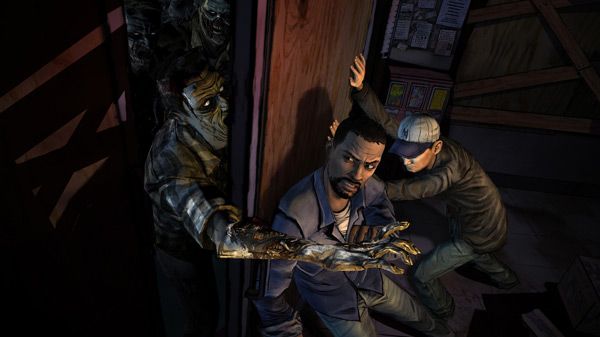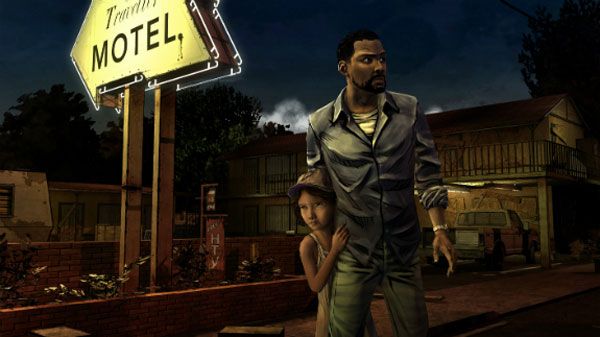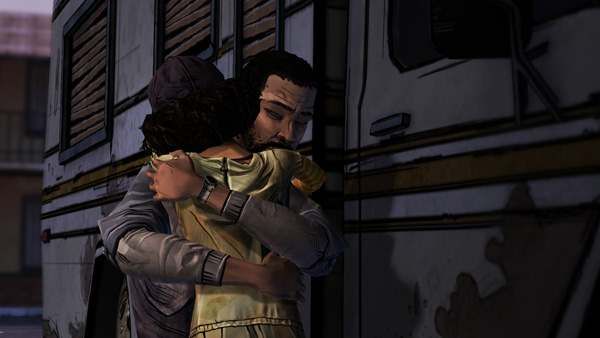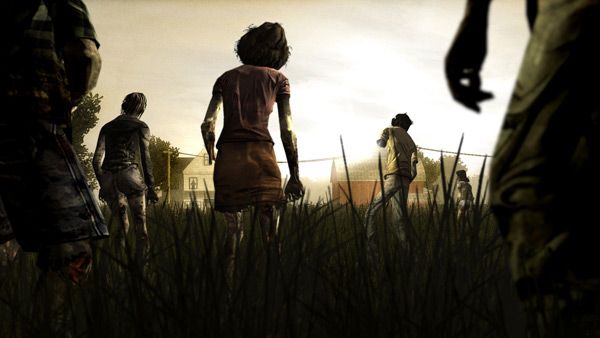This article may contain spoilers for developer Telltale's The Walking Dead, episodes 1 though 3.
Choice systems, generally found in games as the "moral" variety, are a tricky beast. Their inclusion in a series can add to the narrative and make the player feel involved or important within the game universe, giving a sense that his actions have meaning and the story is personalized to him.
It's undoubtedly the reason behind the success of the Mass Effect series, which otherwise would've been considered a fairly standard third-person shooter with relatively high production values.

Which brings me to The Walking Dead. The five-episode series from Telltale has been an absolute joy to play. Essentially a third-person adventure game in the vein of Heavy Rain or any of Telltale's other titles, The Walking Dead has been quite adamant that your choices have meaning and your interactions with characters have weight.
As former history professor and convicted murderer Lee Everett, you're tasked with surviving the zombie apocalypse while ensuring the survival of your own Short Round, Clementine. The story is engaging, the writing and pacing is wonderfully intense, and the art style is gorgeous. Few games have kept me on the edge of my seat like The Walking Dead has.
The way you interact with characters and the decisions you make have both immediate consequences, such as choosing to save the life of battery-challenged reporter Carley or everyone's favorite self-insert Doug, as well as long-reaching implications of how you interact with your merry band of misfits. Throw your lot in with the wrong people, and you might find yourself lacking an ally when you really need one.
Unfortunately, I've seen a lot of people look at the first few episodes of The Walking Dead and say, "Wait, our decisions mean nothing! No matter what we do, there's no way to stop Lily from shooting the only survivor who has our back." And they're right; there's no path through the game that allows you to save Doug or Carley. You can't completely control the story, and no matter what, elements of the narrative are beyond your control and will always happen. And that's OK.

What the Walking Dead does so well is to make the player feel as if every choice, every conversation, and every decision has the potential to be meaningful. It consistently throws in references to your prior actions.
Tell Clementine in the first episode that the farm barn smells like shit, and she'll repeat you later on, generally making you feel awful for being a somewhat poor role model. Kenny will remember all the times that you helped him (or didn't) and isn't averse to bringing it up. Kill someone instead of showing him mercy in front of Clementine, and the game lets you know she will remember that.
Although these examples are really nothing more than small references and have seemingly little meaning in the overall experience, they give the impression of a game world that reacts to the player and accounts for the individual.
Could some of these innocuous choices come back to haunt you? With the game series still going on, it's hard to say, but the possibility of every action possibly having a consequence weighs heavily on you as the game progresses. It makes you second guess yourself and wonder if you made the right decisions. Perhaps if you had said something differently, then Lily wouldn't have shot your friend or Larry wouldn't have died in the freezer.
And therein lies the importance of the illusion of player choice. There's no way Telltale (or any company) would have the resources to make a game that fully accounts for every player decision and branches the story accordingly while still hitting the same story beats and keeping within budget and time constraints.

It goes back to something Quantric Dream game desinger David Cage said prior to the release of Heavy Rain and also in the ramp up to his newest game Beyond: Two Souls:
I would like people to play it once … because that’s life. Life you can only play once …. I would like people to have this experience that way. I’m fine with [people reloading saves to avoid bad endings], but the right way to enjoy Heavy Rain is really to make one thing because it’s going to be your story. It’s going to be unique to you. It’s really the story you decided to write …. I think playing it several times is also a way to kill the magic of it.
The moment you take a look behind the curtain, you can see all the moving parts. You can see which decisions make a difference, which don't, and all possible outcomes. But by doing that, you're robbing yourself of that illusion.
These games require not only Telltale to account for your decisions and do a good job of making them feel important, but they also ask the player to demonstrate a sufficient suspension of disbelief.
It's true that who lives and who dies might not matter in the overall grand scheme of plot points in the game because eventually you'll end up at the same destination, but in your own story and world, all these events do matter because they shape the decisions you make in the future — no matter how big or how small.
It's that sort of roleplaying aspect that really appeals to me and many others, especially in a game as emotionally impactful as The Walking Dead.
VentureBeat's mission is to be a digital town square for technical decision-makers to gain knowledge about transformative enterprise technology and transact. Learn More

